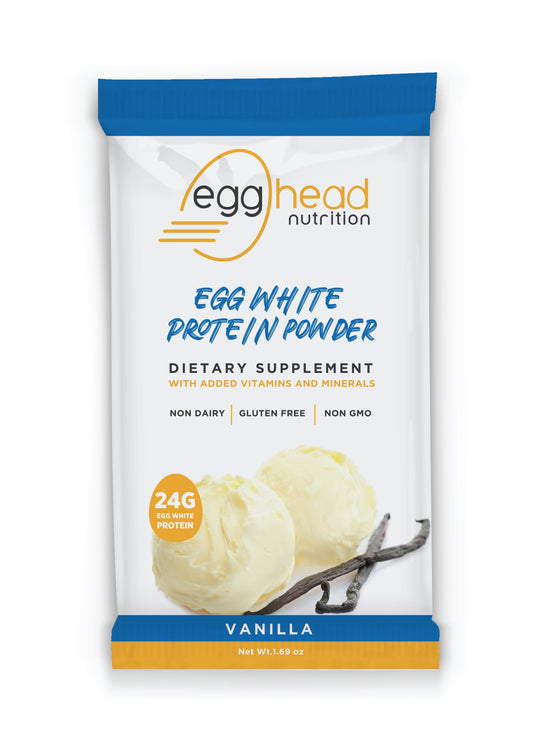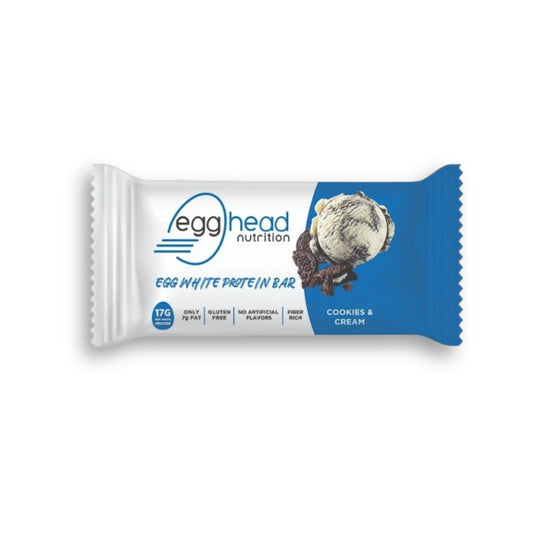Explore our detailed guide on protein intake calculator, ideal protein for athletes, weight management, and overall health in this blog.
What is Protein Intake Calculator?
Proteins are essential macronutrients that play a crucial role in building, repairing, and maintaining the tissues in our body. They are made up of amino acids, often referred to as the building blocks of life.
In the world of health and fitness, protein is particularly lauded for its role in muscle development and repair. However, figuring out exactly how much protein you need can be a complex task, influenced by various factors like age, gender, weight, physical activity level, and specific health goals. This is where a protein intake calculator comes into play.

A protein intake calculator is an innovative tool designed to simplify the process of determining your daily protein requirements. It takes into account your personal attributes and lifestyle factors to provide a customized protein intake recommendation. This tool is not only beneficial for athletes and bodybuilders but also for anyone looking to maintain a healthy lifestyle.
Understanding the Protein Intake
To understand why you need a specific amount of protein, it's important to grasp what protein does in your body. Proteins are not just for muscle building; they are vital for a plethora of bodily functions. They are involved in the formation of enzymes and hormones, play a role in immune function, and are essential for tissue repair and growth.
The Recommended Dietary Allowance (RDA) for protein for the average adult is 0.8 grams per kilogram of body weight. However, this is just a baseline. People who are highly active, pregnant women, older adults, and those recovering from certain illnesses or injuries may need more protein.
Understanding your protein intake helps in various ways. It can assist in weight management, as protein-rich foods can lead to greater feelings of fullness. It's also critical for muscle repair and growth, especially after exercise. Furthermore, adequate protein intake is important for healthy skin, nails, hair, and other organ functions.
Protein Intake Calculator: Why Is It Important?
The importance of a protein intake calculator lies in its personalized approach to nutrition. Not everyone has the same dietary needs, and a one-size-fits-all recommendation doesn't work when it comes to protein intake. Here are some reasons why using a protein intake calculator is important:
- Personalized Nutrition: Everyone's body is different, and factors like weight, age, and activity level influence protein needs. A protein intake calculator considers these factors, providing a more accurate and personalized recommendation.
- Fitness Goals Alignment: Whether you're looking to build muscle, lose weight, or simply maintain a healthy lifestyle, understanding your protein needs is crucial. The calculator helps align your protein intake with your fitness goals.
- Dietary Management: For individuals with specific dietary requirements or restrictions, such as vegetarians or those with certain medical conditions, a protein intake calculator can be an invaluable tool to ensure they're getting enough protein from their diet.
- Convenience and Awareness: Manually calculating your protein needs can be time-consuming and complex. A protein intake calculator simplifies this process, making it easy for anyone to be more aware of their nutritional needs.
- Health Optimization: Adequate protein intake is essential for overall health and well-being. It supports immune function, aids in recovery and healing, and is crucial for normal body functions.
Step by Step Guide - Protein Intake Calculator
Understanding your protein needs is essential for maintaining a healthy lifestyle, especially if you are active or have specific fitness goals. A protein intake calculator simplifies this process, offering personalized recommendations based on various factors. This detailed guide will walk you through each step, ensuring you can accurately determine your daily protein requirements.

Enter Basic Information
The first step in using a protein intake calculator is to input your basic information. This includes your age and gender, which are fundamental in influencing your protein needs. Additionally, your body weight is a crucial metric since protein intake recommendations are often based on weight. Ensure you provide accurate and up-to-date information for the most precise calculation.
Specify Your Activity Level
Your daily physical activity level has a significant impact on your protein needs. In this step, you'll select an option that mirrors your typical activity level. The choices usually range from sedentary (little to no exercise) to highly active (engaging in intense exercise on a daily basis). Accurately assessing your activity level is key, as active individuals typically require more protein to support muscle repair and growth.
Define Your Fitness Goals
Protein needs can vary greatly depending on your fitness goals. Whether you aim to build muscle, lose weight, maintain your current physique, or enhance athletic performance, your protein requirements will differ accordingly. High-protein diets are particularly beneficial for muscle gain and weight management, so it’s important to align your protein intake with your specific goals.
Consider Special Circumstances
This step involves accounting for any unique health conditions or life stages that might affect your protein requirements. For instance, if you are pregnant, breastfeeding, recovering from illness, or have a specific medical condition, your body might need more protein. Accurately reflecting these conditions in the calculator ensures that your protein recommendations are as precise and beneficial as possible.
Submit and Analyze Results
After entering all the necessary information, you'll receive a calculated estimate of your daily protein intake, usually presented in grams per day. It's important to understand that this figure is an estimate and should be used as a guideline. Consider your personal feelings of health and well-being when following these recommendations, and be prepared to adjust if necessary.
Review Dietary Sources
Once you have your daily protein recommendation, it's crucial to consider how you'll meet this target through your diet. Depending on your dietary preferences, such as being vegetarian, vegan, or an omnivore, you'll need to identify protein-rich foods that align with these choices. Protein bars and Protein Powders are a great source of protein intake to have natural muscle-building benefits. This step ensures that you can meet your protein requirements effectively and enjoyably.
Monitor and Adjust
The final step involves ongoing monitoring and adjustment of your protein intake. Use the recommended intake as a starting point and observe how your body responds. Be flexible and ready to modify your protein consumption as needed, particularly if there are changes in your activity levels, health status, or fitness goals.
Protein Intake for Muscle Gain Calculator
When it comes to building muscle, protein is a critical macronutrient. Its role in muscle synthesis and recovery makes it a key focus for athletes, bodybuilders, and fitness enthusiasts. Understanding and calculating the right amount of protein needed for muscle gain is essential for effective and sustainable results. This section delves into the importance of protein in muscle building and provides a detailed guide on how to calculate your protein intake for optimal muscle gain.
Protein's Role in Muscle Gain and Recovery
Protein is fundamental for muscle gain due to its role in repairing and building muscle fibers. When you engage in strength training or resistance exercises, your muscle fibers undergo stress and micro-tears. Protein aids in repairing these fibers, and through this process, muscles grow stronger and larger.

Key aspects of protein's role in muscle gain and recovery include:
- Muscle Protein Synthesis: This is the process where cells construct new proteins. After a workout, your body increases protein synthesis to repair and build muscle fibers.
- Amino Acids: Proteins are made up of amino acids, which are the building blocks for muscle growth. Essential amino acids, particularly leucine, play a pivotal role in initiating muscle protein synthesis.
- Reducing Muscle Breakdown: Adequate protein intake helps minimize the breakdown of muscle during and after exercise. This is crucial for maintaining and increasing muscle mass.
- Recovery: Protein not only aids in muscle recovery post-exercise but also helps in reducing muscle soreness and fatigue, enabling more consistent and effective training.
How to Calculate Protein Intake for Muscle Gain
Calculating your protein intake for muscle gain involves considering your body weight, the intensity of your workout regimen, and your overall fitness goals. Here's a step-by-step guide:
- Determine Your Body Weight: Your protein needs are primarily based on your body weight. Measure your weight in kilograms or pounds.
- Understand Protein Requirements: For muscle gain, the general recommendation is to consume between 1.6 and 2.2 grams of protein per kilogram of body weight. This range can vary depending on the intensity of your workouts and your specific body composition goals.
- Calculate Your Daily Protein Intake: Multiply your body weight in kilograms by the recommended protein amount. For instance, if you weigh 70 kg, and aim for 2 grams per kg, your daily protein intake should be around 140 grams.
- Consider Workout Intensity: If you are engaging in intense strength training or bodybuilding, you might need to be at the higher end of the protein range. For moderate training, the lower end may be sufficient.
- Adjust as Needed: It's important to listen to your body and adjust your protein intake based on your progress and how you feel. If you're not seeing muscle gains or you're experiencing prolonged muscle soreness, you may need to increase your protein intake.
- Balance Your Diet: While focusing on protein is key for muscle gain, it's also important to maintain a balanced diet. Carbohydrates and fats are essential for overall health and energy, and a variety of vitamins and minerals are crucial for muscle function and recovery.
- Quality of Protein: Opt for high-quality protein sources that contain all the essential amino acids. These include lean meats, fish, dairy products, eggs, and for plant-based options, quinoa, legumes, and soy products.
Special Considerations in Protein Intake
Protein intake isn't a one-size-fits-all matter; it varies widely based on individual lifestyles, fitness goals, and health conditions. Understanding these nuances is key to optimizing protein consumption for various needs, particularly for different groups like athletes versus non-athletes, and for specific objectives like weight management.
Protein Needs for Athletes vs. Non-Athletes
Athletes
- Higher Demand: Athletes generally require more protein than non-athletes. This is because of the increased needs for muscle repair, growth, and recovery due to intense physical activities.
- Range: The recommended range for athletes can be between 1.2 to 2.0 grams of protein per kilogram of body weight daily, depending on the type and intensity of the sport.
- Timing: Protein timing is also crucial for athletes. Consuming protein shortly after a workout can optimize muscle repair and growth.
Non-Athletes:
- Moderate Needs: Non-athletes, or those engaged in regular but not intense physical activity, require less protein. The standard recommendation is about 0.8 to 1.0 grams per kilogram of body weight.
- Lifestyle Considerations: Non-athletes should focus on a balanced diet where protein supports general health, including maintaining muscle mass and supporting metabolic functions.
- Adjusting Protein Intake for Weight Management
- High-Protein Diets: For weight loss, high-protein diets can be beneficial. Protein helps in satiety, which can reduce overall calorie intake.
- Muscle Preservation: During weight loss, a higher protein intake can help preserve lean muscle mass, which is important for maintaining metabolic rate.
- Calculation: To adjust protein intake for weight management, consider both your current weight and your target weight when calculating protein needs.
Comparative Table: Aspects of Protein Intake for Athletes vs. Non-Athletes
|
Aspect |
Athletes |
Non-Athletes |
|
Recommended Intake |
1.2 - 2.0 grams/kg body weight |
0.8 - 1.0 grams/kg body weight |
|
Purpose of Protein |
Muscle repair, growth, and recovery from training |
Maintenance of muscle mass, overall health |
|
Protein Timing |
Crucial (post-workout for recovery and muscle growth) |
Less critical (even distribution throughout the day) |
|
Type of Protein |
Focus on complete proteins with all essential amino acids (e.g., whey, casein) |
Balanced variety, including plant-based proteins |
|
Protein and Carbs Ratio |
Higher protein to carb ratio post-workout |
Balanced protein to carb ratio for general health |
|
Adjustment for Training Intensity |
Regular adjustments based on training cycles and intensity |
Stable intake, adjustments not typically based on activity level |
|
Impact on Performance |
Direct impact on athletic performance and endurance |
Indirect impact, more focused on overall well-being |
While protein is a crucial nutrient for both athletes and non-athletes, the approach to protein intake, including the amount, type, and timing, can differ significantly based on the individual's activity level and health goals.
Conclusion
In conclusion, understanding the role of protein in our diet is pivotal, whether you are an athlete, someone managing their weight, or simply looking to maintain a healthy lifestyle.
The journey through the intricacies of protein intake—from using a protein intake calculator to recognizing the distinct needs of athletes versus non-athletes—highlights the importance of personalized nutrition.
Each individual's protein requirements are unique and influenced by various factors, including activity level, fitness goals, and overall health status. The guide provided in this blog aims to demystify protein consumption, offering a clear pathway for determining your personal protein needs.
Remember, while these guidelines and tools offer a great starting point, consulting with health and nutrition professionals for personalized advice is always beneficial.
Ultimately, a well-balanced diet, mindful of protein needs, is a cornerstone of good health and wellbeing, aiding in everything from muscle growth and recovery to maintaining vitality and overall health.







